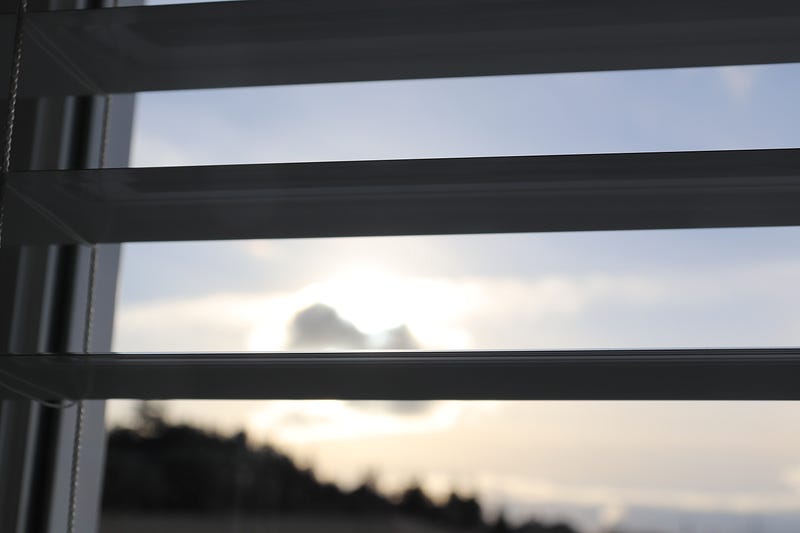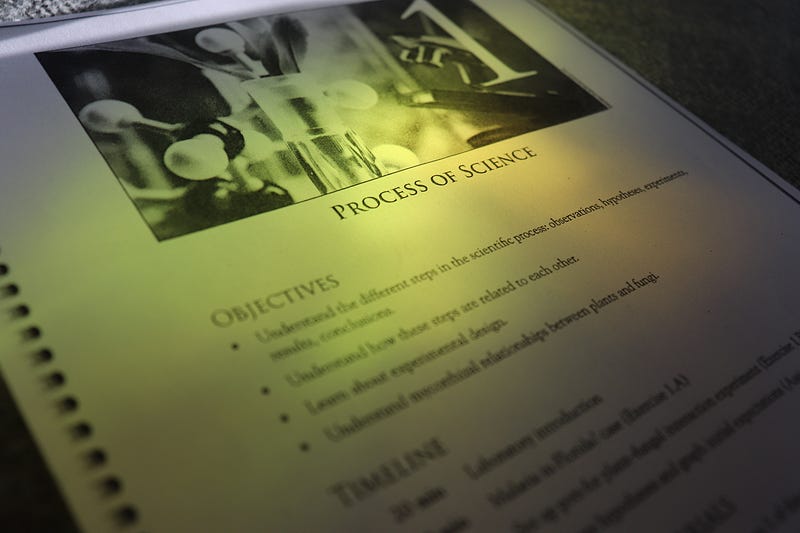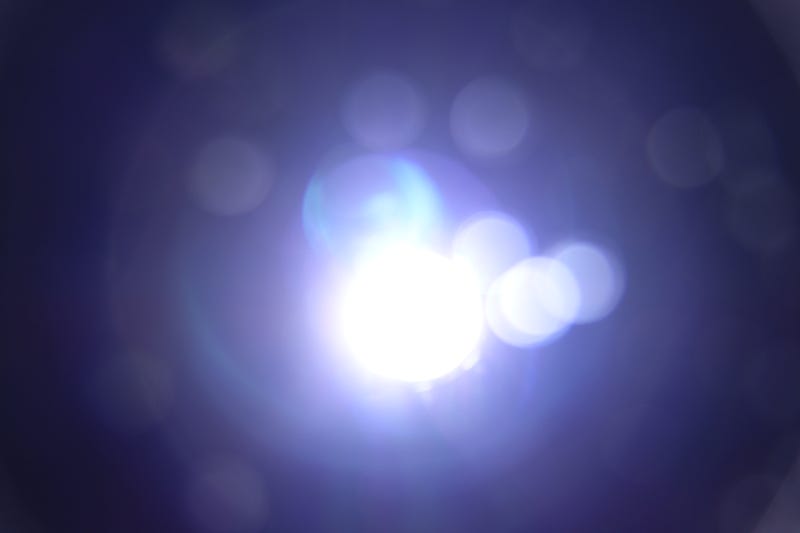Finding Light in a Dark Room

Seeking academic validation while struggling with mental health.
Story by Macy Adkinson
Opening your eyelids in the morning seems a little bit harder each day. The bright light is a piercing reminder it’s time to get up and go through the motions once again. Roll out of bed, skip breakfast, open your laptop to find a stream of emails. Notifications clutter your inbox, and another dreaded “late submission” flashes red near the upper right corner of Canvas.
But it shouldn’t be late.
Because you have accommodations. Extended turn-in dates for assignments. Double time for tests.
The professor knows that, right?
Of course they know — you just talked about it.
With the transition to remote courses, students and instructors alike have struggled. Before, tests that required accommodations could be taken at the Disability Access Center with instructor permission. Navigating the online world of Canvas to allow or acquire these accommodations can be difficult for professors and students.
For a Western transfer student — for the sake of anonymity we’ll call them Aspen — who has depression, OCD and a multitude of other diagnoses, another complication was the last thing they needed on their plate.
Coming to college was an easy decision for them. With a plethora of passions, and an associate’s degree from their Running Start program, Aspen decided to continue down their education path. They were especially interested in pursuing their love of physics.
Aspen’s interest in this science sparked from light. It wasn’t an epiphany they had during high school physics that piqued their curiosity; it was observing the sun rays bouncing around their room.

The study of light, known as optics, is an important research area in modern physics. This branch of physics describes how light behaves and interacts with matter. We rely on it every day. Using knowledge of how light behaves under different conditions, scientists and engineers can create different types of technology, explore the universe, monitor the environment and even solve crimes.
With depression, tasks like hygiene and eating can take all of one’s mental energy. Finding something that sparks light and passion can be rare, and holding onto it can keep one from drowning.
But the feelings of happiness and peacefulness that followed Aspen’s decision to pursue physics were short-lived.
One of Aspen’s physics professors began giving them grief about late turn-ins and extensions for labs. The professor even informed Aspen they wouldn’t grade a test because it came in too late.
Aspen had documentation and accommodations through the Disability Access Center. Yet, the professor ignored their double test time and said they wouldn’t accept Aspen’s submissions anymore. Communication with this professor was rough. Aspen said they sent multiple emails addressing the test situation but those and others went without reply or acknowledgment. Thankfully, Aspen’s test was eventually graded without comment from the instructor.
Still, after years of struggling with mental health issues that affected them in school, Aspen felt like this was piling onto those experiences, causing more anxiety and stress about their grades.
“My professor made me think, ‘Well, this is my favorite thing to do and I’m going to fail at it, so what’s the point?’” Aspen said.
Feeling desperate and distraught, they sought advice about their predicament on the r/WWU subreddit — the Reddit forum dedicated to Western. Aspen wrote, “I don’t have the drive to fight for myself any more than I already have.”
They didn’t expect the response that came their way.
Resources and support flooded the post. Thirty-three comments sat fresh in the reply section within 24 hours, each sharing anecdotes about their own experiences with school and mental health struggles.
One user wrote: “Success isn’t linear, neither is life. Some finish college, some don’t, some (like me and I imagine you) have had a few speed bumps, crises, or any other number of unique circumstances that prevent us from achieving the preconceived notion of success in the western world. Our society has pushed the notion that money, status, or success is required and if you can’t achieve this you are outed. It isn’t required, your mental health is and always will bae more important than a college degree, a job, a relationship, etc.”

Aspen was surprised by the outpouring of community and support.
“I was going to delete the post within a few minutes, but the responses genuinely stopped me from harming myself,” they said, adding that their partner’s support also helped.
In 2019, the National Center for College Students with Disabilities found that many students were unaware of the services their schools provided, and struggled to understand the process to receive those services. The students also reported inadequate accommodations and scarce support in disclosing their disabilities. Furthermore, the investigation revealed that some instructors were uninformed about campus procedures, unresponsive to students or even opposed accommodation requests.
Aspen is certainly not alone in this struggle, which has only been intensified by the ongoing pandemic.
Research on the challenges of remote learning during the pandemic found that students with pre-pandemic disparities had difficulties getting accommodations according to the study “The Experiences of Undergraduate Students with Physical, Learning, Neurodevelopmental, and Cognitive Disabilities During the COVID-19 Pandemic.”
“Students with physical, learning, neurodevelopmental, or cognitive disabilities reported experiencing significantly more challenges and hardships during the COVID-19 pandemic than students without disabilities,” researchers wrote. “Students with disabilities experienced more financial hardships, food insecurity, housing insecurity, and symptoms of anxiety and depression.”
Kathleen DeNicola, an accommodation manager at the WWU Disability Access Center, joined the team two weeks before the pandemic hit in March 2020. Remote communication was all she had known while working at Western — which remained closed until this fall — since students couldn’t just drop by the office anymore.
“If the main line of communication to professors is through email, that’s difficult because you may not always get a response back right away,” DeNicola said. “Or, it’s hard to discern the tone in an email.”
Limited access to internet, phones and reliable housing can also interfere with students getting the help they need.
DeNicola noted that unfortunately, issues with professors with respect to academic accommodations are pretty common. She said students in that situation should contact the center as early as possible so the center can step in to make sure accommodations are being honored.
“There’s definitely a power dynamic that I think is felt by students,” DeNicola said. “College students are just starting to learn self-advocacy, and if they’ve grown up in a situation where they’ve experienced a lot of ableism, they might not have the confidence to realize that their experience and rights need to be respected.”
Like the wise Redditor wrote, success isn’t linear. But there are ways that the academic environment can evolve.
“The biggest change I’d like to see is flexibility,” Aspen said. “We’ve obviously learned throughout the pandemic that being flexible is important.”
Despite the turmoil, Aspen said they’re going to be okay. With the help of new treatments and face-to-face communication resuming in the fall — when resources are more accessible — life will continue to move forward.
“Seeing the beauty in things is important to me, which can be very difficult nowadays,” they said. “It makes me feel the meaning in my suffering and in all suffering.”
As we enter a new chapter, we must remain hopeful like Aspen. Light makes its way into a dark room when the sun rises again.
It’s simple physis.

